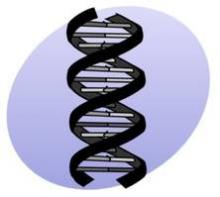Mutations in the CYP2C genes on chromosome 10 appear to predispose carriers to severe adverse cutaneous reactions to the antiepileptic drug phenytoin, according to a report published Aug. 5 in JAMA.
Researchers performed a genome-wide association study of more than 850,000 single-nucleotide polymorphisms (SNPs), followed by direct sequencing of the genes identified as suspicious, to investigate possible genetic factors associated with severe phenytoin-related cutaneous reactions. Phenytoin – the most frequently used first-line antiepileptic agent in hospitalized patients, which is also effective for other neurologic disorders – is known to cause cutaneous reactions ranging from mild rash to life-threatening eosinophilia, Stevens-Johnson syndrome, and toxic epidermal necrolysis, said Dr. Wen-Hung Chung, of the department of dermatology at Chang Gung Memorial Hospital, Taiwan, and his associates.
The study participants were 168 Taiwanese patients taking the drug who developed cutaneous reactions, including 13 who died from those adverse events; 130 Taiwanese patients who were tolerant of phenytoin; and 412 controls from the general Taiwanese population. The genome-wide association study identified a cluster of 16 SNPs on chromosome 10 that showed some association with the adverse cutaneous reactions, including 8 SNPs on CYP2C genes. Direct sequencing of the CYP2C genes found another two variants that were significantly associated with phenytoin-related severe cutaneous adverse reactions. The findings were replicated in an independent set of 30 cases of phenytoin-related severe cutaneous adverse reaction who were recruited from the Taiwan Severe Cutaneous Adverse Reactions Consortium and compared against the 130 phenytoin-tolerant controls (JAMA 2014;312:525-34).
One of the identified mutations, CYP2C9*3, is known from previous studies to impair clearance of phenytoin from the body; in this study it also was linked to extremely slow metabolism, and thus high plasma concentrations, of the drug. The association between CYP2C9*3 and severe cutaneous adverse reactions findings was then validated in additional population-based samples from Taiwan, Japan, and Malaysia. A meta-analysis of the data from all the study populations showed that, overall, CYP2C9*3 carriers were at markedly increased risk for severe cutaneous adverse reactions, with an odds ratio of 11.


